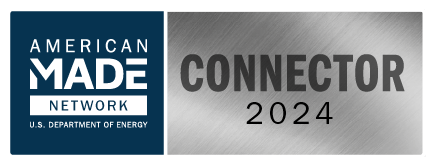Alex Nikulin and Tim de Smet spend their spare time metal detecting. While this may conjure images of sunburnt hobbyists combing the beach or an empty field, this duo isn’t searching for old coins. No, these geophysicists are on the hunt for five-inch wide metal tubes, the remnants of abandoned gas wells.
Texas is often held up as the pinnacle of U.S. oil exploration, but what not many consider is how New York state was the first major oil producer with exploration and drilling booming throughout the 19th century. As you might imagine, shoddy record-keeping and lost data has led to thousands of old wells being forgotten to time. The problem then (literally) arises as open wells continue to let out methane, CO2 and even chloroform into the atmosphere.
The methane leaking from the uncapped wells is roughly 30 times more potent as a heat-trapping gas than CO2, making these abandoned wells an unseen combatant in the fight against climate change. Nikulin and de Smet see this not as a reason to despair, but as a problem to solve through their start-up company Aletair.
These Binghamton University faculty began their involvement with drone technology in an explosive way. They combined specialized camera and metal detecting apparatus with drones to spot unexploded ordinance on the battlefield. Their methods were proven when, during a planned test of their technology in the field, they were able to detect two rockets with relative ease. The catch: only one rocket was known to exist on the test site. they had been able to find another poking out of the sand which testers were unaware of.
As start-up businesses often do, they began to explore adjacent industries that could find use of their technology and methods. Surely you can see where this is going: the metal pipes of abandoned gas wells were near the exact diameter of the ordinance they were searching for, and thus, the company pivoted.
“Abandoned gas wells are bad news for everybody,” says Nikulin. “Oil companies want these capped to prevent blowouts, developers need them capped to utilize the land and New York state wants them remedied for environmental reasons.”
During a recent hunt for abandoned wells in collaboration with the Department of Environmental Conversation in Olean, NY, the team was able to identify 72 wells in three hours using their drones. In contrast, only a fraction of those 72 were found when a survey was done on foot prior.
This pivot was made possible in part to through the company’s participation in the Binghamton I-Corps Program, a National Science Foundation-funded program offered at the Koffman Incubator which provides guidance and grants for companies to connect with potential customers and identify the direction their product or research should take.
“The I-Corps program allowed the pivot to happen. We’re using the $50k grant to travel and do customer discovery,” notes de Smet.
Additionally, the company has taken residence of laboratory space in the Koffman Incubator and expects to utilize the clean energy program to continue their forward progress.
“It’s great to talk to other innovators, mentors and to collaborate with others in the Incubator,” says Nikulin. “I say caffeine drives innovation, so I’m eagerly anticipating the return of the coffee station at the incubator as well*.”
*The coffee station was paused due to COVID-19



